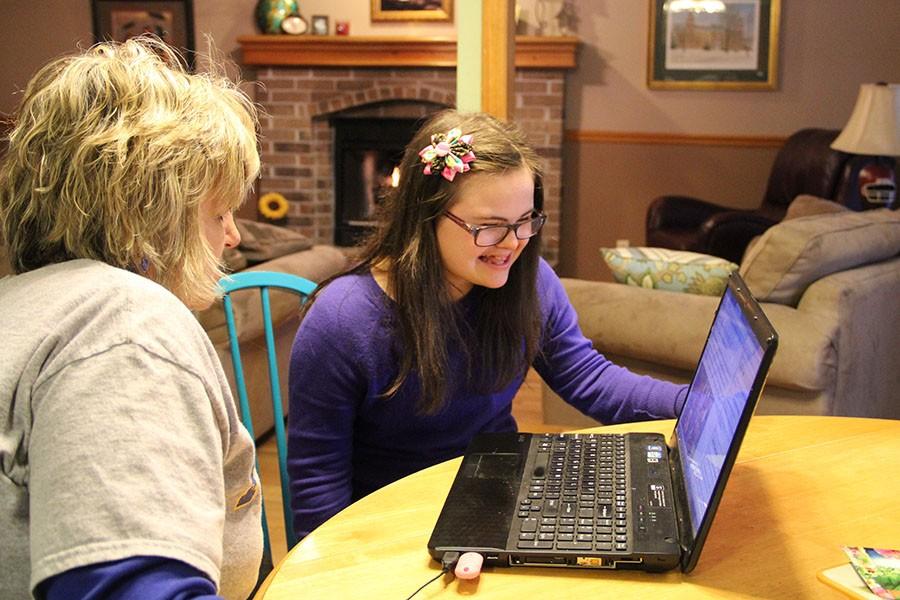ABLE act—
Mast and family advocate for bill that will secure financial future for those with disabilities
March 16, 2015
Rachel Mast, freshman, stood in front of a court room to testify on behalf of The Achieving a Better Life Experience (ABLE) Act in January of 2015.
“I was so honored to be in court. It was awesome! I wasn’t nervous; I was so excited,” she said.
Rachel Mast had different methods of preparing for the big moment.
“I practiced at home and there,” she said.
Then the time came to present her hard work. “It [the courthouse] was very big” and there were “a lot of people,” but she just had to “shake it off.”
“I talked and they asked questions,” she added.
It was certainly an enjoyable experience for both her and the attendees.
Her favorite part was “getting to talk to everyone.”
Rachel Mast along with her family has been campaigning for eight years to make the ABLE Act a federal law.
The bill was first introduced in 2007, but it did not initially pass through Congress. The Mast family, however, did not give up. They continued to gain support of the senators, congressmen and their staffs through visits to Washington, D.C., and through social media. The bill was reintroduced every two years until it was signed into law by President Barack Obama on Dec. 19, 2014.
According to Rachel Mast’s mother, Jawanda Mast, “the bill aims to ease financial strains faced by individuals with disabilities by making tax-free savings accounts available to cover qualified expenses… for individuals, including medical and dental care, education, community-based supports, employment training, assistive technology, housing and transportation.”
Rachel Mast plans to take full advantage of these benefits.
“I really, really want a husband! I want to get married and live in a pink house in New York City,” she said.
These savings accounts will allow individuals with disabilities to save money for their future without being penalized for exceeding the eligibility limit for federal benefits programs such as Supplemental Security Income, Supplemental Nutrition Assistance Program or Medicaid.
In other words, the savings in an individual’s ABLE account will not be taken into consideration when applying for federal benefits programs.
The accounts have the same types of flexible savings tools that all other Americans have through college savings accounts, health savings accounts and individual retirement accounts.
The ABLE Act is administered at the state level, so it is still in the process of passing state legislation. Its targeted start date is in July of 2016.
Rachel Mast would like to thank her great teachers, school, friends, and other people who helped, but most importantly her mom.
“I want everyone to know that the ABLE Act can help,” she said.
Jawanda Mast feels “relief, joy, and a proud moment for the future of those with Down syndrome and other disabilities.”










